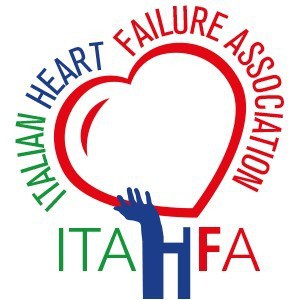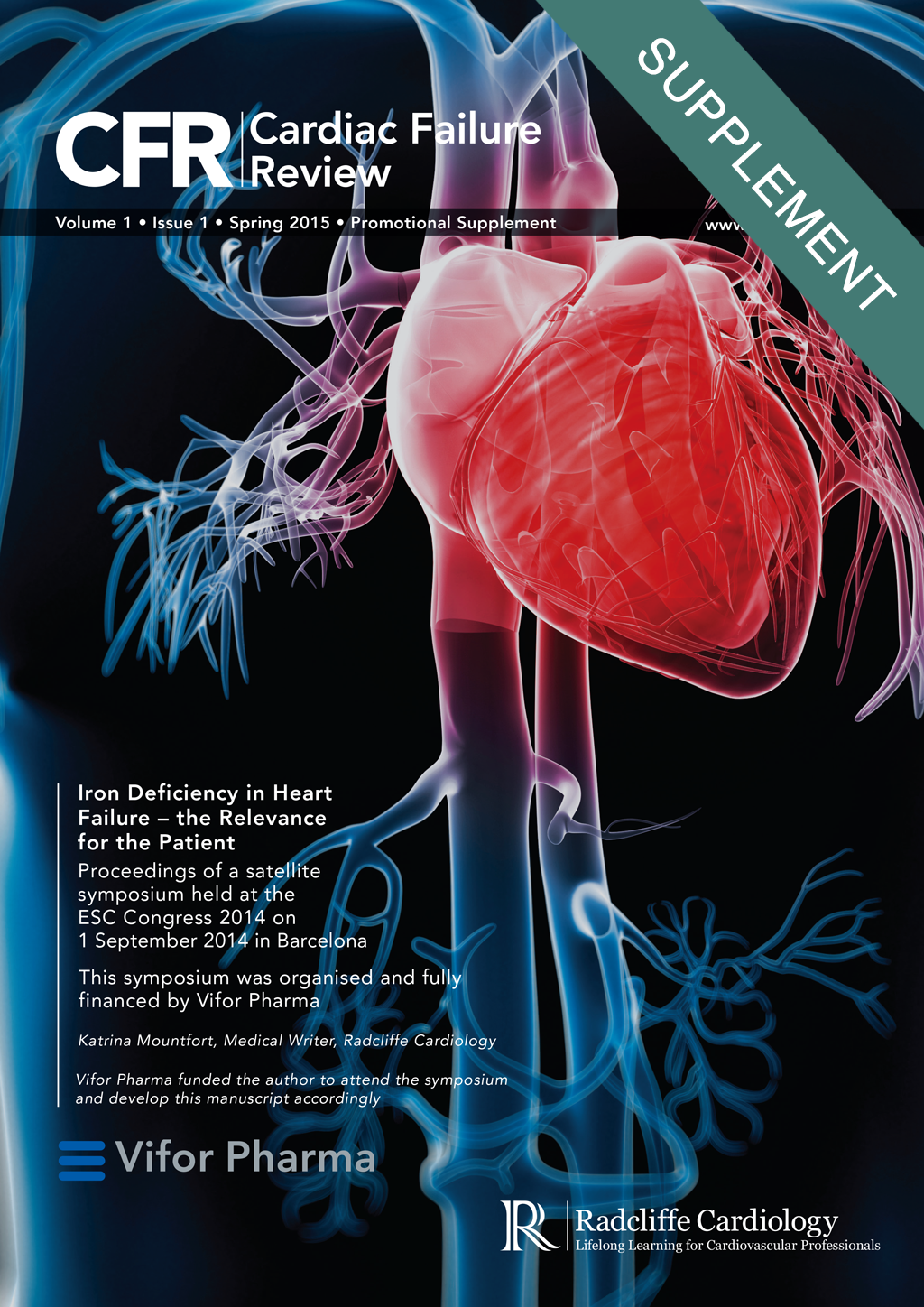Iron Deficiency in Heart Failure – the Relevance for the Patient
This symposium was organised and fully financed by Vifor Pharma
Editorial Process
Radcliffe Cardiology (RC) approached Vifor Pharmaceuticals Ltd (Vifor) to develop a proceedings article summarising presentations from their industry-supported symposium that took place at the European Society of Cardiology Meeting in Barcelona on September 1 2014. Vifor provided funding to RC for a medical writer to attend the sponsored session and develop a manuscript accordingly. This draft was reviewed for scientific accuracy by each of the session chairmen and presenters; and two blinded peer reviewers with suggested amends incorporated. On approval by all reviewing parties, the symposium was submitted to Radcliffe Cardiology and accepted for publication in Cardiac Failure Review (CFR).
Abstract
A satellite symposium at the 2014 European Society of Cardiology (ESC) congress discussed the importance of iron deficiency (ID) in heart failure (HF). ID is the main cause of anaemia and is observed in almost 50 % of HF patients in Europe and up to 80 % of patients in Asia. ID is an independent factor associated with reduced exercise capacity, reduced quality of life (QoL) and poor outcomes in HF. The importance of ID in HF is reflected in the fact that the current ESC Guidelines for HF recognise ID as a co-morbidity in HF for the first time, and recommend routine diagnosis and monitoring for ID based on iron parameters. Intravenous (i.v) administration of ferric carboxymaltose (FCM) was considered as a possible treatment option according to the findings of the Ferric Carboxymaltose Assessment in Patients With IRon Deficiency and Chronic Heart Failure (FAIR-HF) clinical study, which showed that treatment with FCM in HF patients with ID improves symptoms, exercise capacity and QoL. These findings were confirmed by the recent Ferric CarboxymaltOse evaluatioN on perFormance in patients with IRon deficiency in coMbination with chronic Heart Failure (CONFIRM-HF) study, which demonstrated that, in symptomatic patients with chronic HF and ID treatment with i.v. FCM over one year resulted in sustainable improvements in exercise capacity, symptoms and QoL, and was associated with a reduced risk of hospitalisations due to worsening HF.
Summary and Take Home Notes
ID remains under-recognised among cardiologists – an audience survey revealed that a significant minority regularly monitor ID in their HF patients. The take-home messages of the symposium were the following:
- ID is the main cause of anaemia, but also highly prevalent in non-anaemic patients; it is observed in almost 50 % of HF patients in Europe and the prevalence is even higher in Asia.
- ID but not anaemia is associated with:
– reduced exercise capacity;
– reduced QoL; and
– poor outcome. - Treatment with FCM in iron deficient chronic HF patients (FAIR-HF/CONFIRM-HF studies) improves:
– symptoms;
– exercise capacity; and
– QoL.
These results were seen in both anaemic and non-anaemic patients, and the risk of hospitalisation due to worsening HF may be reduced.
- The ESC Guidelines have given a Class I recommendation for ID testing in all HF patients.
The link for the webcast of the presentations is now available: http://congress365.escardio.org/Session/14186#.VFukzrFbDIW
The CONFIRM-HF results were also discussed at the Expert on the Spot session and webcast is also available by this link:
http://congress365.escardio.org/Session/14134#.VFulWLFbDIV
Written By : Katrina Mountfort
Reviewers : Carolyn Lam, Piotr Ponikowski, Stefan Anker
Citation : Cardiac Failure Review 2015;1(1 Suppl 1):1-8.
DOI : https://doi.org/10.15420/cfr.2015.1.1.S1









